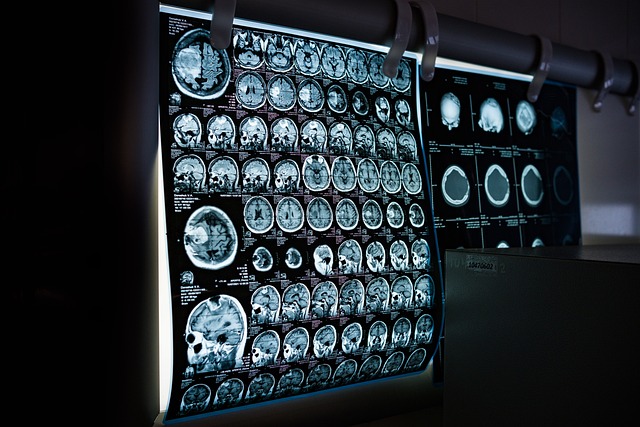Test Nurse #9338
Nursing degrees open doors to diverse healthcare careers. Explore program types, admission requirements, and core study areas. Understand how each educational path equips you with the skills and knowledge needed for various roles within the nursing profession.

Types of Nursing Degrees: From Certificates to Doctorates
The nursing profession offers multiple educational pathways to accommodate different career goals and time commitments. At the entry level, you’ll find certificates and diplomas that typically take 1-2 years to complete, primarily preparing students for Licensed Practical Nurse (LPN) or Licensed Vocational Nurse (LVN) roles. The Associate Degree in Nursing (ADN) requires about 2-3 years of study and allows graduates to take the NCLEX-RN exam to become Registered Nurses.
For those seeking more advanced positions, the Bachelor of Science in Nursing (BSN) provides a comprehensive four-year education combining clinical experience with deeper theoretical knowledge. Many healthcare facilities now prefer or require BSN preparation for RN positions. Graduate-level options include Master of Science in Nursing (MSN) programs that prepare nurses for specialized roles like Nurse Practitioner, Clinical Nurse Specialist, or Nurse Administrator, while terminal degrees such as Doctor of Nursing Practice (DNP) or PhD in Nursing equip nurses for the highest levels of clinical practice, research, and educational leadership.
Nursing Degree Requirements: What You Need to Get Started
Admission requirements for nursing programs vary based on the degree level and institution, but most share common prerequisites. For entry-level programs like certificates or ADN degrees, you’ll typically need a high school diploma or equivalent with a strong foundation in biology, chemistry, and mathematics. Many programs require a minimum GPA (often 2.5-3.0), completion of prerequisite courses, and satisfactory scores on entrance exams like the TEAS (Test of Essential Academic Skills).
Bachelor’s degree programs generally have more competitive admissions, requiring higher GPAs and possibly healthcare experience or volunteer work. For graduate programs, requirements become more stringent, including a bachelor’s degree in nursing, active RN licensure, clinical experience (often 1-2 years minimum), letters of recommendation, personal statements, and interviews. All nursing programs require students to complete background checks, drug screenings, immunization records, and often CPR certification before beginning clinical rotations. The ability to meet physical demands and technical standards of nursing practice is also essential regardless of program level.
Nursing Curriculum Overview: Core Competencies and Specializations
Nursing education blends scientific knowledge with practical skills development and professional formation. Core curriculum components typically include anatomy and physiology, microbiology, pharmacology, health assessment, and nursing fundamentals. As students progress, they encounter increasingly complex courses in medical-surgical nursing, maternal-child health, psychiatric/mental health nursing, community health, and geriatric care.
Clinical rotations form a crucial part of all nursing programs, allowing students to apply classroom learning in real healthcare settings under supervision. These practical experiences occur across various specialties and settings, from hospitals and long-term care facilities to community clinics and home health agencies. Many programs also incorporate professional development courses covering nursing ethics, healthcare policy, evidence-based practice, and leadership skills. Advanced programs offer specialized tracks in areas like pediatrics, oncology, critical care, or nurse anesthesia, allowing students to tailor their education to specific career goals while building on the comprehensive foundation that defines nursing education.
Nursing Career Opportunities: Diverse Paths in Healthcare
A nursing degree provides access to one of the most versatile careers in healthcare, with opportunities spanning clinical care, administration, education, research, and policy development. Registered Nurses can work in hospitals across various specialty departments including emergency, surgery, labor and delivery, pediatrics, and intensive care. Beyond hospital settings, nurses are employed in physician offices, outpatient clinics, schools, correctional facilities, and corporate health departments.
Advanced practice registered nurses (APRNs) with graduate degrees serve as Nurse Practitioners, Certified Nurse-Midwives, Clinical Nurse Specialists, and Certified Registered Nurse Anesthetists, often working with significant autonomy in diagnosing and treating patients. For those interested in leadership roles, nursing degrees open paths to positions such as Nurse Manager, Director of Nursing, Chief Nursing Officer, or healthcare administrator. Nurses with appropriate education can also become nurse educators in academic or clinical settings, healthcare consultants, legal nurse consultants, or researchers contributing to the advancement of healthcare practices and policies.
Benefits of a Nursing Degree: Professional and Personal Rewards
Nursing degrees offer significant advantages beyond just employment opportunities. From a financial perspective, nursing provides solid compensation with clear advancement potential. Entry-level registered nurses earn a national average of approximately $75,330 annually, while specialized and advanced practice roles can command six-figure salaries. The profession also boasts excellent job security—the Bureau of Labor Statistics projects 6% growth in RN positions between 2022 and 2032, with even higher growth rates for advanced practice roles.
Beyond economics, nursing offers unparalleled flexibility, with options for various shift patterns, part-time work, and travel nursing assignments. The diversity of specialties means nurses can transition between different areas of practice throughout their careers without requiring complete reeducation. Perhaps most significantly, nursing provides profound personal fulfillment through meaningful patient connections and tangible positive impact on health outcomes. Nurses consistently report high job satisfaction derived from the combination of intellectual challenge, human connection, and the knowledge that their daily work directly improves lives during some of life’s most vulnerable moments.
Conclusion
Nursing degrees represent powerful educational credentials that enable diverse and fulfilling career paths in healthcare. By understanding the various degree options, requirements, curriculum components, and resulting career opportunities, prospective nursing students can make informed decisions about their educational journey. The nursing profession continues to evolve, offering ever-expanding roles and responsibilities that blend scientific expertise with compassionate care. Whether you’re drawn to direct patient care, leadership, education, or research, a nursing degree provides the foundation for a career marked by stability, growth potential, and the opportunity to make a meaningful difference in the lives of others.
This article is for informational purposes only and should not be considered medical advice. Please consult a qualified healthcare professional for personalized guidance and treatment.




